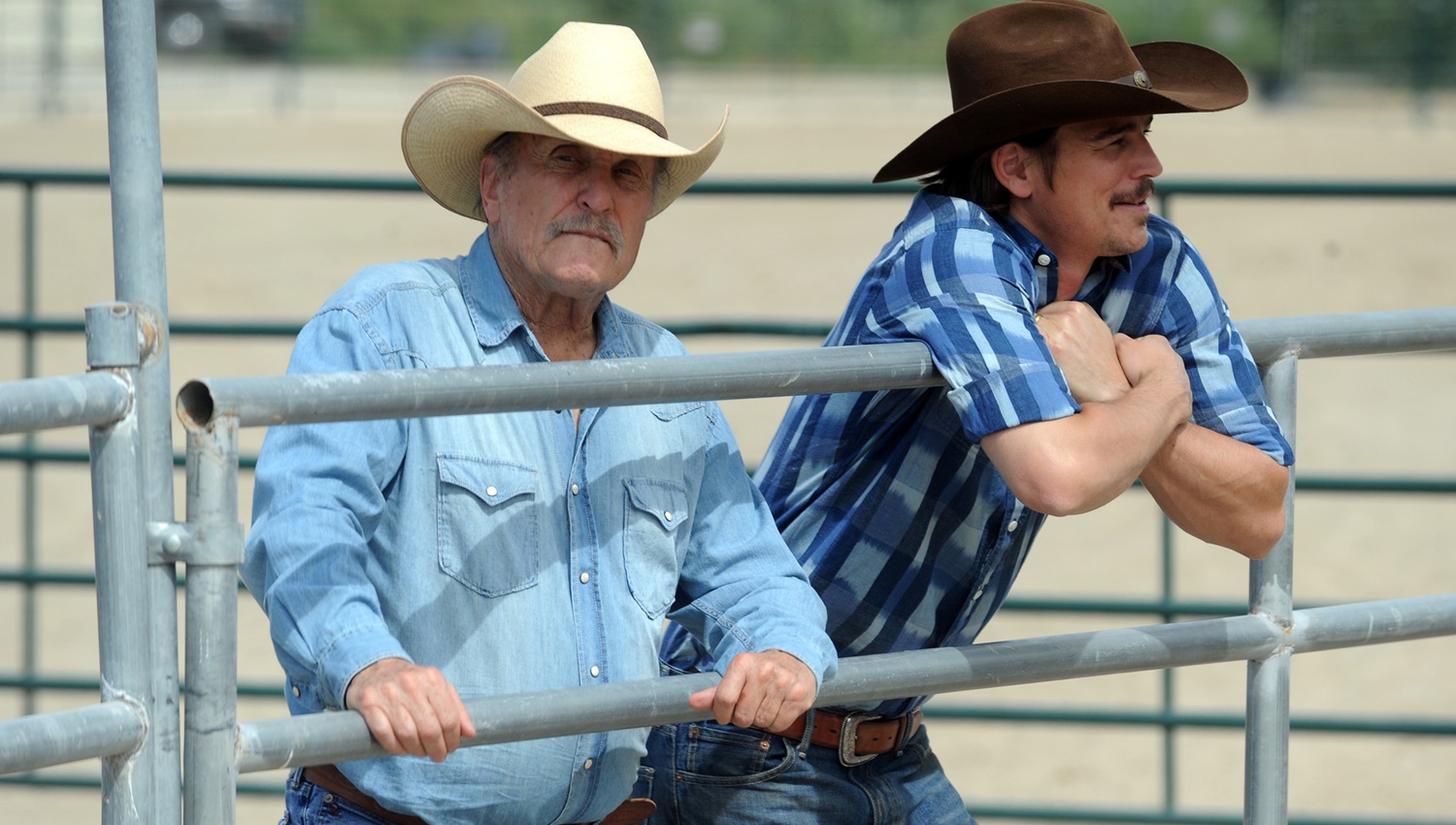
Wild Horses
Dustin Chase
Writer/director Robert Duvall does something with his latest western / crime drama that you wouldn’t expect. Wild Horses ventures into new territory for Duvall as he tackles sexism, homophobia, and other prejudices. From the opening scenes of the film where Duvall’s character finds his youngest son with another boy, all bets are off where this story is headed. The cast assembled here is quite an interesting mix with Duvall’s wife Luciana as a Texas ranger, Hartnett (Pearl Harbor) in his best feature film role in a long time. Then there is Franco, no surprise playing the gay son. Having the world premiere at SXSW, Duvall took the stage to explain how we can’t have characters like the in old days who are either good and bad. “We are all a percentage of bad, some days more so”.
It’s been 15 years since Scott Briggs (Duvall), living by his own law, pointed a gun at his youngest son Ben (Franco), after catching him in the barn with Jimmy Davis. “Don’t ever come back here again until you are straightened out,” Scott yells. Ben leaves town and Jimmy Davis was never seen again. Now the past has come back to haunt Scott who has mellowed out a bit, and wants a reunion with Ben in his decrepit old age. Jimmy’s mother (Barraza) has gotten the attention of local a Texas Ranger (Pedraza) who reopens the cold case. When Ben is summoned to hear the updates to his father’s will and estate, more family secrets surface giving Scott a second chance to make things right.
Touches an emotional nerve.
Duvall’s previous film (also starring Cepeda) A Night in Old Mexico was as forgettable as Wild Horses is memorable. Here Duvall seems interested in addressing current social issues through a modern western façade. Duvall can play stubborn like no one else and casting himself in the lead role here was an obvious choice. Franco, another obvious choice for this role, arguably one of the more important roles in his career, is at his best since 127 Hours. The biggest malfunction in Wild Horses is with some of the non-actors who play rangers. Many of their lines don’t sound embedded in the story and are almost jarring they are delivered so poorly. Hartnett doesn’t add much performance wise to the film, but it’s nice to see him attached to a film with merit.
Ben accuses his father of “protecting himself with silence” when he tries to bring up the past. That silence in conservative settings seems to be the very subject Duvall wants to expose with Wild Horses, which he wasn’t allowed to film in Texas. “You always sing the same song and never finish it,” Maria says to Scott. It’s a theme that could be applied to Duvall and the types of characters he plays and films he is attached to, which is why this seems so drastically different within the confines of the genre. In many ways Wild Horses does more for creating acceptance and dialogue on these subjects than say Brokeback Mountain did. You could argue the script tries to tackle too many issues at once, but the story here is compelling, especially in the moments between Franco and Duvall. It touches an emotional nerve and I say bravo to Duvall as a writer and director for going where the western genre has never gone before.
Final Thought
Duvall makes a career high point with his writing and directing career as he tackles surprising subject matter within the western genre.
